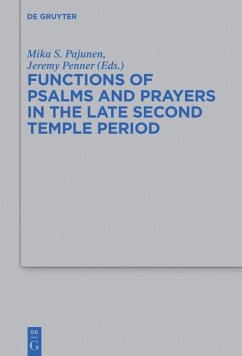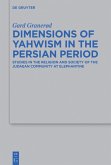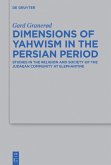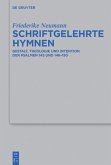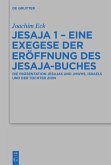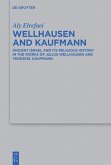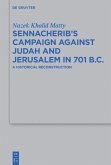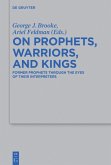When thinking about psalms and prayers in the Second Temple period, the Masoretic Psalter and its reception is often given priority because of modern academic or theological interests. This emphasis tends to skew our understanding of the corpus we call psalms and prayers and often dampens or mutes the lived context within which these texts were composed and used. This volume is comprised of a collection of articles that explore the diverse settings in which psalms and prayers were used and circulated in the late Second Temple period.
The book includes essays by experts in the Hebrew bible, the Dead Sea scrolls, Apocrypha and Pseudepigrapha, and the New Testament, in which a wide variety of topics, approaches, and methods both old and new are utilized to explore the many functions of psalms and prayers in the late Second Temple period. Included in this volume are essays examining how psalms were read as prophecy, as history, as liturgy, and as literature. A variety methodologies are employed, and include the use of cognitive sciences and poetics, linguistic theory, psychology, redaction criticism, and literary theory.
The book includes essays by experts in the Hebrew bible, the Dead Sea scrolls, Apocrypha and Pseudepigrapha, and the New Testament, in which a wide variety of topics, approaches, and methods both old and new are utilized to explore the many functions of psalms and prayers in the late Second Temple period. Included in this volume are essays examining how psalms were read as prophecy, as history, as liturgy, and as literature. A variety methodologies are employed, and include the use of cognitive sciences and poetics, linguistic theory, psychology, redaction criticism, and literary theory.
"Zu einem wichtigen Themenbereich ein anregender, weiterführender Sammelband, dem Verbreitung und gute Aufnahme zu wünschen sind - und damit verbunden die Hoffnung, dass die Camps der biblischen und der nachbiblisch-antikjüdischen Erforschung von Psalmen und Gebeten stärker miteinander ins Gespräch finden."
Beate Weber in: Theologische Revue 114.4 (2018), 291-293
Beate Weber in: Theologische Revue 114.4 (2018), 291-293

